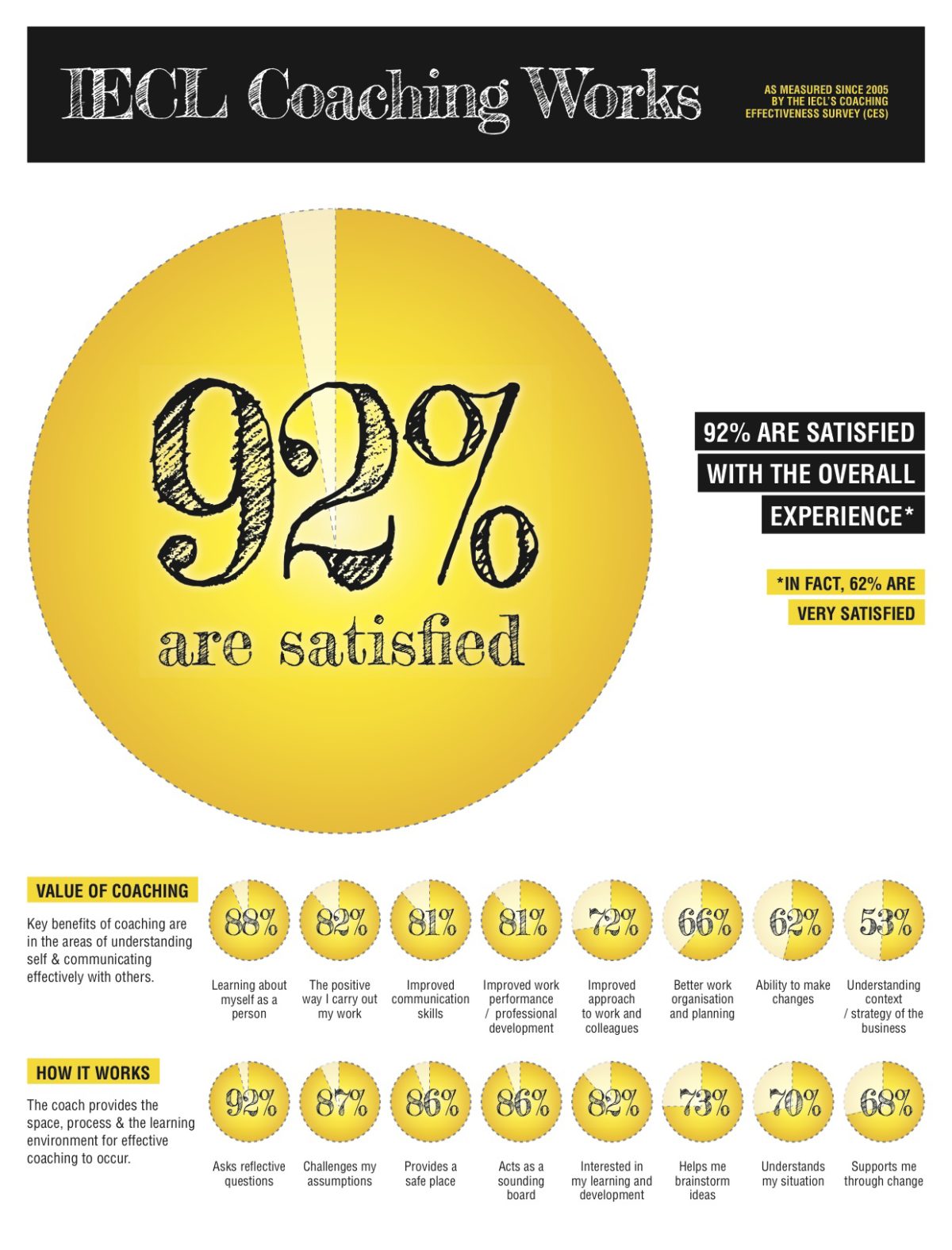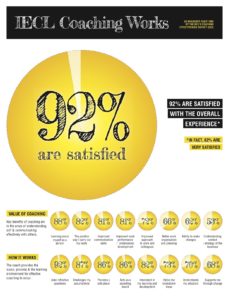
With coaching having emerged as a popular approach to leadership development, why don’t all coaches evaluate their effectiveness? Why are more organisations not measuring the benefits and outcomes of coaching? HR Magazine explores how one coaching services provider has designed and implemented a Coaching Effectiveness Survey (CES), which identifies that their coaching works and also how it works.
Recent research conducted globally by PWC (2013) for the International Coach Federation has indicated that while most organisations know that the coaching they have invested in has been effective, most of the evidence for this is anecdotal. As measuring the success of coaching can be difficult and complex, it appears that many organisations and HR professionals tend to use informal feedback mechanisms to investigate coaching effectiveness, rather than formal quantitative processes (if it is measured at all). It is estimated that only one-third of coaching initiatives in organisations are ever evaluated (McDermott, Levenson, & Newton, 2007).
Similarly, coaches do not typically report following up on their coaching in a systematic fashion, with research suggesting that as many as 16% of coaches never follow up at all (Gale, Liljenstrand, Pardieu, & Nebeker, 2002). When undertaking coaching evaluations, coaches primarily report using sources of subjective feedback, rather than using empirically valid measures of actual coaching effectiveness.
In this environment it’s clear that both HR professionals and coaches could benefit from access to proven, reliable instruments (or at least the data obtained from these) that would assist them in evaluating the impact of coaching in organisations.
This apparent lack of available measures of coaching effectiveness led the Institute of Executive Coaching and Leadership (IECL) (an established provider of coaching services since 1999 in the Asia Pacific region) to develop an online Coaching Effectiveness Survey (CES) in 2005. This online survey is sent to all IECL coaching clients for voluntary completion at the completion of their coaching engagement. It captures the coachee’s overall levels of satisfaction with the coaching, the key benefits obtained from the coaching experience (and the relevance of these to their work), information on expectations of coaching and also how coaching works. By 2013, the IECL had collected a sufficient population of responses to be able to undertake research to demonstrate that the CES is a statistically reliable measure of coaching effectiveness. The findings of this research (Tooth, Nielsen, & Armstrong, 2013) were published in Coaching: An International Journal of Theory, Research and Practice.
So what does the IECL’s survey tell us about coaching effectiveness?
First and foremost, we understand that the majority of individuals (92% in the IECL results) are satisfied with the coaching experience. It is likely this type of positive feedback informs most HR professionals’ and coaches’ anecdotal assessments of coaching effectiveness. The CES also demonstrates that coaching has a number of key benefits, most significantly developing a coachee’s understanding of self (88%) and communicating effectively with others (81%). These results demonstrate the value of coaching as an individually tailored development intervention for development of the person in organisations, which also results in benefits for the business.
What is also interesting about the CES is that is demonstrates the key ways in which coaching works. The role of the coach in asking reflective questions to support the coachee to think differently (92%), challenging coachee assumptions (87%), providing a safe place (86%) and acting as a sounding board (86%) are all important factors. These also illustrate aspects of competence that should be emphasised in coach education and training programmes. Finally, it also indicates the valuable role of an external coach in being interested (82%), understanding (70%) and supporting the coachee through change (68%).
If you wish to learn more about IECL or get in touch, visit www.iecl.com.

Organisational coaching works: Measuring coaching effectiveness | HR Features - HR Magazine | HR Online
References
Gale, Jonathan, Liljenstrand, Anne, Pardieu, Joyce, & Nebeker, Delbert. (2002). Executive Summary. Coaching: Who, what, where and how. Retrieved 25 May 2007, 2007, from http://www.badergroup.com/coaching_summary.pdf
McDermott, Mike, Levenson, Alec, & Newton, Suzanne. (2007). What coaching can and cannot do for your organization. HR. Human Resource Planning, 30(2), 30-37.
PricewaterhouseCoopers. (2013). International Coaching Federation Organizational Coaching Study. Executive Summary: International Coaching Federation.
Tooth, Julie-Anne, Nielsen, Sharon, & Armstrong, Hilary. (2013). Coaching effectiveness survey instruments: Taking stock of measuring the immeasurable. Coaching: An International Journal of Theory, Research and Practice, 6(2), 137-151 doi: 10.1080/17521882.2013.802365




